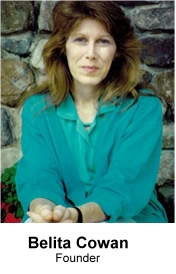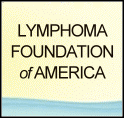 “2 months to live”“Two months to live.” That’s what the doctors told us. But how could that be? My husband was healthy. He was young, active, and strong. Surely there was a mistake. What was his disease called again? Lymphoma. I had never heard of it. That’s how my journey began one day in December, just weeks before my 38th birthday. My husband was diagnosed with nonhodgkin lymphoma, stage 4B. The cancer had metastasized to his liver and bone marrow. It surrounded his lungs. Swollen nodes were everywhere. His kidneys were shutting down. A huge 16 cm mass was in his abdomen. The doctors named it “rock of Gibraltar.” “Two months to live.” Is that enough time to turn things around? Or is too late? We were lost, floating in the deep ocean, adrift in a nightmare. I wanted to talk to other patients. I desperately needed to find somebody who had recovered from this awful disease. We began searching for a lymphoma support group. We couldn’t find one. We tried to find a national lymphoma organization. There weren’t any. We called the American Cancer Society. They said there was no organization for lymphoma. The year was 1986. That year I founded the first Lymphoma Support Group in the United States, which soon grew into the first national lymphoma organization -- Lymphoma Foundation of America. I placed an announcement in The Washington Post about a lymphoma support group that was forming in Chevy Chase, Maryland. Patients and families were invited to attend. I was stunned when people arrived at the meeting from all over the region, Virginia, Washington D.C. and Maryland. It was a humble beginning for a movement and a community that began to reach out to lymphoma patients across the country. Hope is a powerful emotion. By sharing our experiences and offering advice to each other, we hoped to recover from lymphoma together. Finally there was a place where patients could openly express their fears and dreams. Because my husband’s situation was critical, he decided to sign up for experimental treatments at the National Cancer Institute. His clinical trial was called MB-110. Over the next year and a half, he took 9 different chemo drugs followed by 6 months of total body radiation. Some of the drugs were so toxic that he had to be hospitalized just to take them. He was so sick. We start to wonder. What’s worse? The cancer or the treatment? But then . . . the tumors started to shrink. Over the next few years, I expanded the Lymphoma Foundation of America’s support services, and asked nurses and social workers to counsel patients and families in all 50 states. We organized lectures with speakers from the National Cancer Institute. A buddy program was set up to connect people who were in treatment. During this time, my husband used macrobiotics as a way to eat good food and recover his strength and health. The following year, Lymphoma Foundation of America began offering cash assistance to low-income patients to help them travel to the doctor. The Foundation was later recognized by NCI’s 1-800-4CANCER hotline. Next I turned my attention to lymphoma research. Why did people get lymphoma? What are the causes? I discovered that very few cancer charities are doing research on the environmental causes of cancer. With lymphoma, there is a strong association with a person’s exposure to pesticides (weed killers). Particular chemicals including solvents and benzene are also associated with lymphoma. Certain occupations carry a higher risk of lymphoma. Lymphoma Foundation of America gives research awards and grants to scientists who are investigating the causes of lymphoma and developing new gene therapy treatments. Today, Lymphoma Foundation of America is able to help even more patients and families, thanks to charitable donations from thousands of individuals who support the Foundation’s work. Your generosity and kindness are very much appreciated. I am confident that one day, hopefully soon, lymphoma treatments will be 100% successful in curing this disease. And yes, my husband’s personal story has a happy ending. He recovered from lymphoma. It’s been more than 30 years.
|



